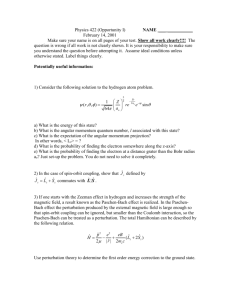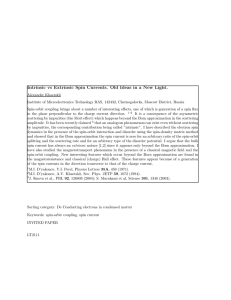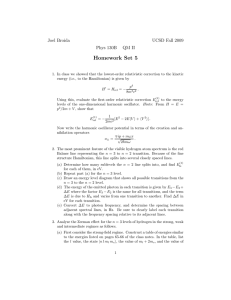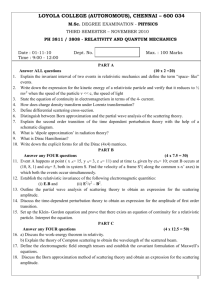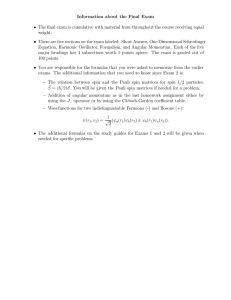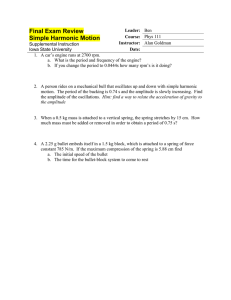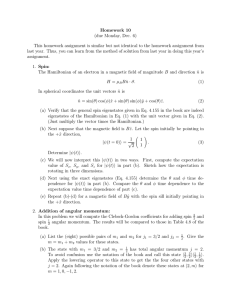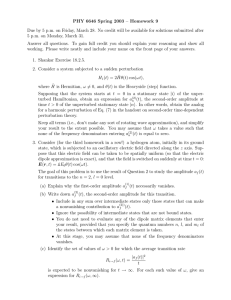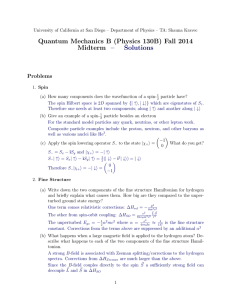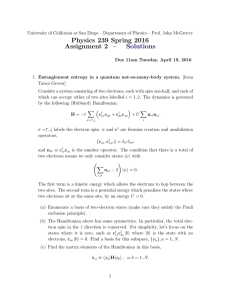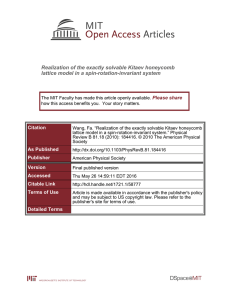PHY 4605 April 11, 2011 Exam #2 Motto of Plato’s Academy
advertisement
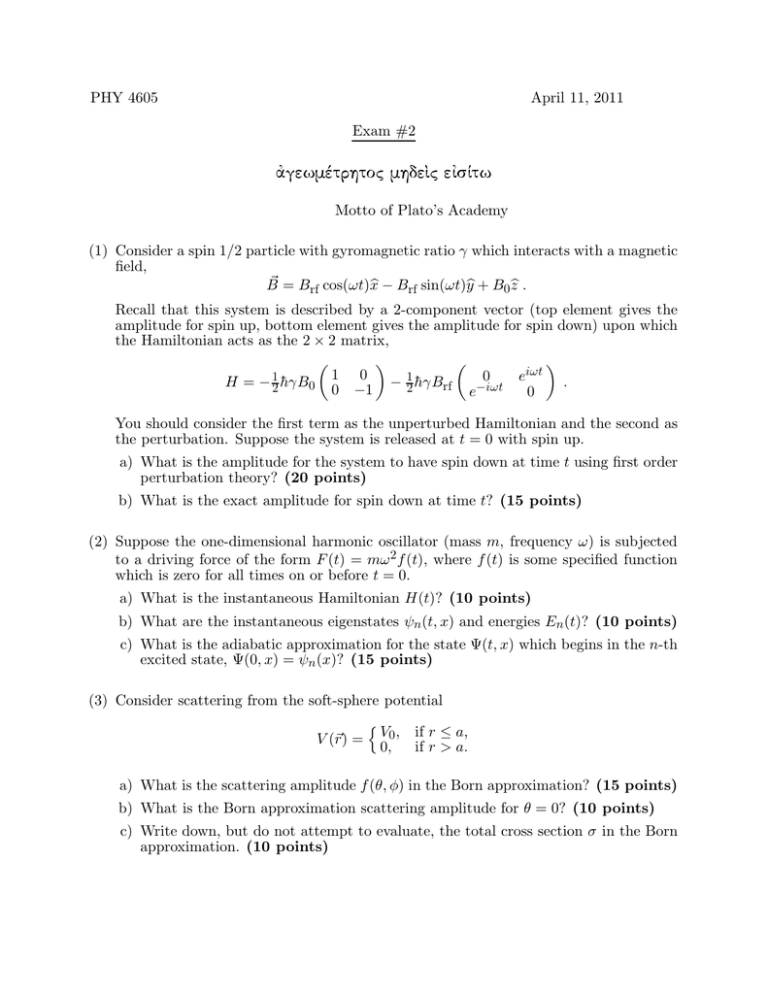
PHY 4605 April 11, 2011 Exam #2 gewmètrhtoj mhdeÈj eÊstw Motto of Plato’s Academy (1) Consider a spin 1/2 particle with gyromagnetic ratio γ which interacts with a magnetic field, ~ = Brf cos(ωt)b B x − Brf sin(ωt)b y + B0 zb . Recall that this system is described by a 2-component vector (top element gives the amplitude for spin up, bottom element gives the amplitude for spin down) upon which the Hamiltonian acts as the 2 × 2 matrix, iωt 1 0 0 e 1 1 − 2 h̄γBrf H = − 2 h̄γB0 . 0 −1 e−iωt 0 You should consider the first term as the unperturbed Hamiltonian and the second as the perturbation. Suppose the system is released at t = 0 with spin up. a) What is the amplitude for the system to have spin down at time t using first order perturbation theory? (20 points) b) What is the exact amplitude for spin down at time t? (15 points) (2) Suppose the one-dimensional harmonic oscillator (mass m, frequency ω) is subjected to a driving force of the form F (t) = mω 2 f (t), where f (t) is some specified function which is zero for all times on or before t = 0. a) What is the instantaneous Hamiltonian H(t)? (10 points) b) What are the instantaneous eigenstates ψn (t, x) and energies En (t)? (10 points) c) What is the adiabatic approximation for the state Ψ(t, x) which begins in the n-th excited state, Ψ(0, x) = ψn (x)? (15 points) (3) Consider scattering from the soft-sphere potential n V0 , if r ≤ a, V (~r) = 0, if r > a. a) What is the scattering amplitude f (θ, φ) in the Born approximation? (15 points) b) What is the Born approximation scattering amplitude for θ = 0? (10 points) c) Write down, but do not attempt to evaluate, the total cross section σ in the Born approximation. (10 points)
